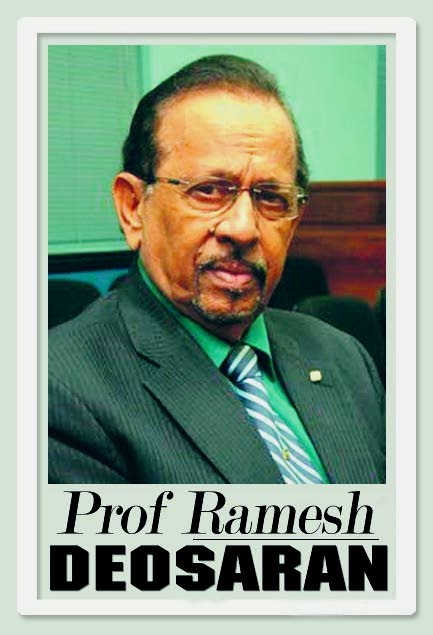A perilous society

Perilous. The reality-driven headlines are frightening.
The ominous warnings, escalating murder rate, low detection rates, etc, all help indicate the society is in a perilous state meaning a society “full of risk; dangerous; hazardous; exposed to imminent risk of destruction.”
Few headline examples: Two brothers murdered. Three gunned down. Rampage. Total breakdown in society. Vigilante justice now. Crime crisis. Fear in the city. Big money to kill, cause mayhem. Slaps for Stuart. Hadad wants crime talks in Tobago. Squatting free for all on Toco Beach.
All with very serious social and economic consequences. The squatting epidemic is an old story, encouraged by law enforcement failure.
Like many others, former president Anthony Carmona admitted the country is heading into great danger. Magistrate Rae Roopchand asked, where has this country gone too?
We are top ten in the world murder rate. An editorial declared: Country demands answers on crime. (Guardian, Jan 22). This is not alarmist or finger-pointing. It is about accountability in a democracy. And attacking others as a means of defence is misguided. Careful, somebody may unwisely tell the newspaper to shut up because it doesn’t know enforcement and forensics.
While besieged NSC chairman and PM Dr Rowley pleads for understanding and help, his commissioner of police seems to go the other way, obscuring whatever success achieved.
And this while the country needs inspiration from renewed commitment and a revised, inclusive crime-fighting road map. The new Gender-Based Unit shows a good sign. The church, NGOs, business, several professional groups, all express willingness to join the fight. But credible leadership and structure are necessary.
Hence the repeated 1977 proposal for a multi-sectoral National Crime Commission to help stem the crime flow collectively. In fact, as Dr Rowley and Kamla Persad-Bissessar well know, there are quite a few research-driven proposals all of which have been wittingly or unwittingly shelved. I remember in 2017 after giving former national security minister Edmund Dillon, a complimentary copy of my 1982 book Crime, Justice and Society, he perused the pages then said, “you know nothing much has changed since.”
The tragedy facing this generation is that we are likely to leave the society more lawless and perilous for the next generation. Is this a betrayal?
Police statistics reveal a murder rate that seems unstoppable. “Me-Tarzan” postures deflect rather than attract support for collective solutions. This is a serious time for strategic thinking, not bluster. For whatever reasons, have law enforcement and forensic investigations failed? Why? As the editorial demanded, those in charge should account. What else can you say when, for example, we have for the past few years (2013-19) an average detection rate of less than 20 per cent for murders (eight per cent in 2019). The escalating murder rate: 408 in 2013, 462 in 2016, 517 in 2018 and 536 in 2019: all this from 94 in 1990!
What do law enforcement leaders have to say with, for example, an average detection rate of less than 20 per cent for larceny, burglaries and break-ins (10.6 per cent in 2019) robberies and murders?
For 2013 to 2019, woundings and shootings detection rate between 20 per cent and 30 per cent (police data). Fewer and fewer citizens report robberies, burglaries, break-ins and dwelling-house larceny largely due to the discouraging low detection rates. Have law enforcement and forensics failed? Why?
My lawyer friend noted that constitutional lines are crossed between national security minister and police commissioner. While the Police Service must be respected and independent, it must also be accountable. My friend further noted that when there were serious criticisms over escalating crime during the previous UNC administration, PM Persad-Bissessar with advice told reporters, ask commissioner Stephen Williams. Mr Young is not commissioner, but policy-maker.
As Mr Young advised, while NGOs, criminologists, parents, teachers, businessmen, etc, should do their part, we must also ensure that the taxpayer-supported institutions execute their constitutional duties and account to the public. Note, the Parliament “may make laws for the peace, order and good government of TT.” (Constitution, section 53) Key instruments are cabinet, ministers and the police service with the commissioner having “complete power to manage the Police Service and ensure that the human, financial and material resources available are used in an efficient and effective manner” and be accountable for law enforcement. (Constitution, section 123A). Then come the Police Service Commission, Police Complaints Authority, Police Service Act and Regulations. That is our democratic system of accountability. If not, society faces perilous times.

Comments
"A perilous society"